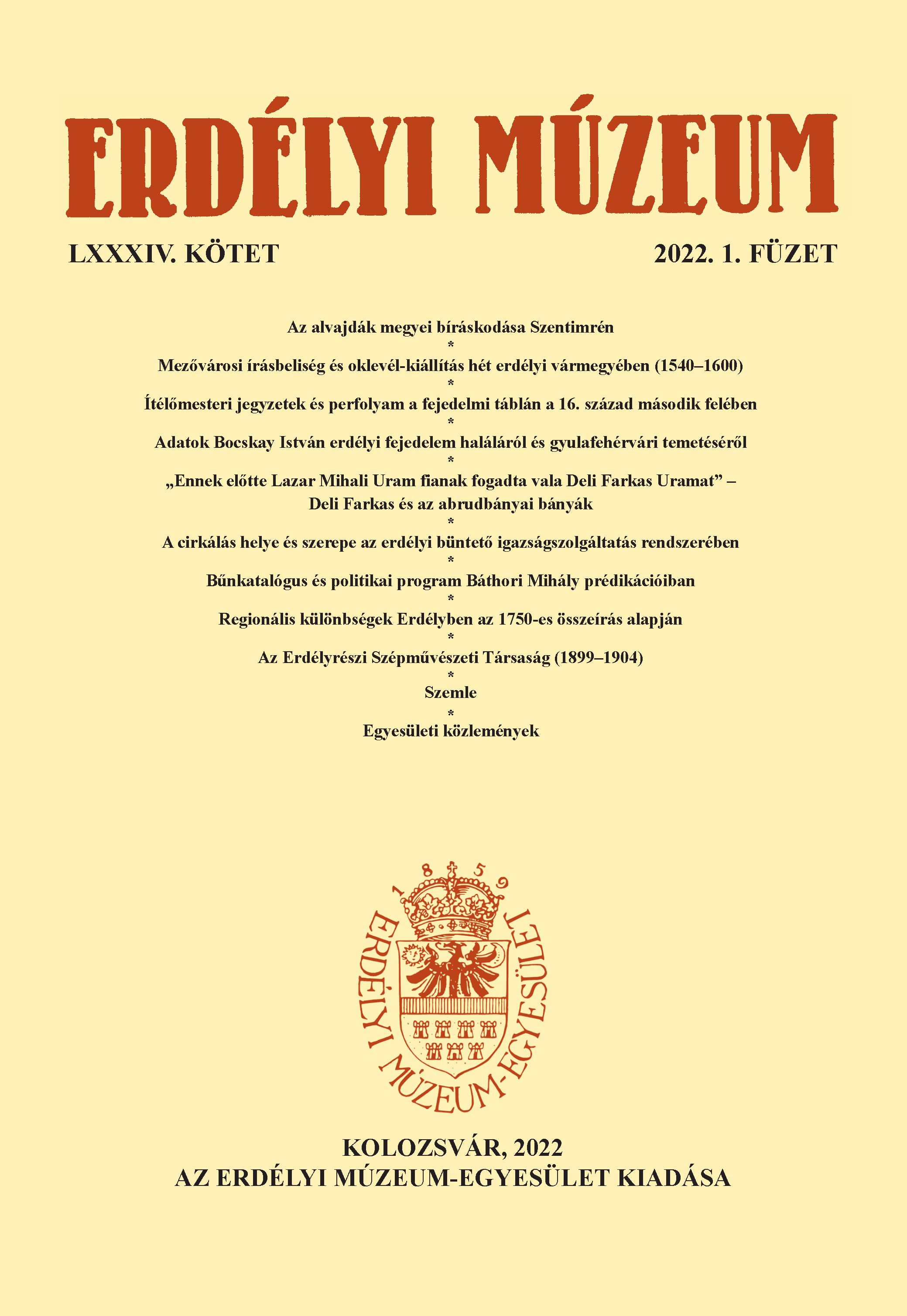Bűnkatalógus és politikai program Báthori Mihály prédikációiban
Catalogue of Sins and Political Programme in the Sermons of Mihály Báthori
Author(s): Zoltán ErdősSubject(s): Cultural history, History of ideas, Hungarian Literature, 17th Century
Published by: Erdélyi Múzeum-Egyesület
Keywords: Transylvanian Principality; sermons; court preacher; political discourse;
Summary/Abstract: It is well known that the essential aim of the 16th–17th century Protestant catalogues of sins was to exhort the audience of the sermons and the readers of the prayers to moral renewal, and thereby to conduce the deliverance from God’s punishment. We can fi nd one of the most sophisticated catalogues in the sermons of Mihály Báthori, court preacher of Ferenc Rhédey, delivered in January 1658, and printed six years later. The goal of this study is to throw new light on the sermons, and to interpret them as part of the political discourse during the 1657–1662 crisis in Transylvania. In this context it seems to be clear that Báthori’s main aim was not only to urge the moral renewal of the nation: he articulated a very up-to-date political programme as well. He argued for the reign of the newly elected Prince, Ferenc Rhédey, and against the returning György Rákóczi II.; he defined the moral rebirth as a single political act, as standing for the “pious prince”.It is well known that the essential aim of the 16th–17th century Protestant catalogues of sins was to exhort the audience of the sermons and the readers of the prayers to moral renewal, and thereby to conduce the deliverance from God’s punishment. We can find one of the most sophisticated catalogues in the sermons of Mihály Báthori, court preacher of Ferenc Rhédey, delivered in January 1658, and printed six years later. The goal of this study is to throw new light on the sermons, and to interpret them as part of the political discourse during the 1657–1662 crisis in Transylvania. In this context it seems to be clear that Báthori’s main aim was not only to urge the moral renewal of the nation: he articulated a very up-to-date political programme as well. He argued for the reign of the newly elected Prince, Ferenc Rhédey, and against the returning György Rákóczi II.; he defined the moral rebirth as a single political act, as standing for the “pious prince”.
Journal: Erdélyi Múzeum
- Issue Year: LXXXIV/2022
- Issue No: 1
- Page Range: 91-100
- Page Count: 10
- Language: Hungarian

